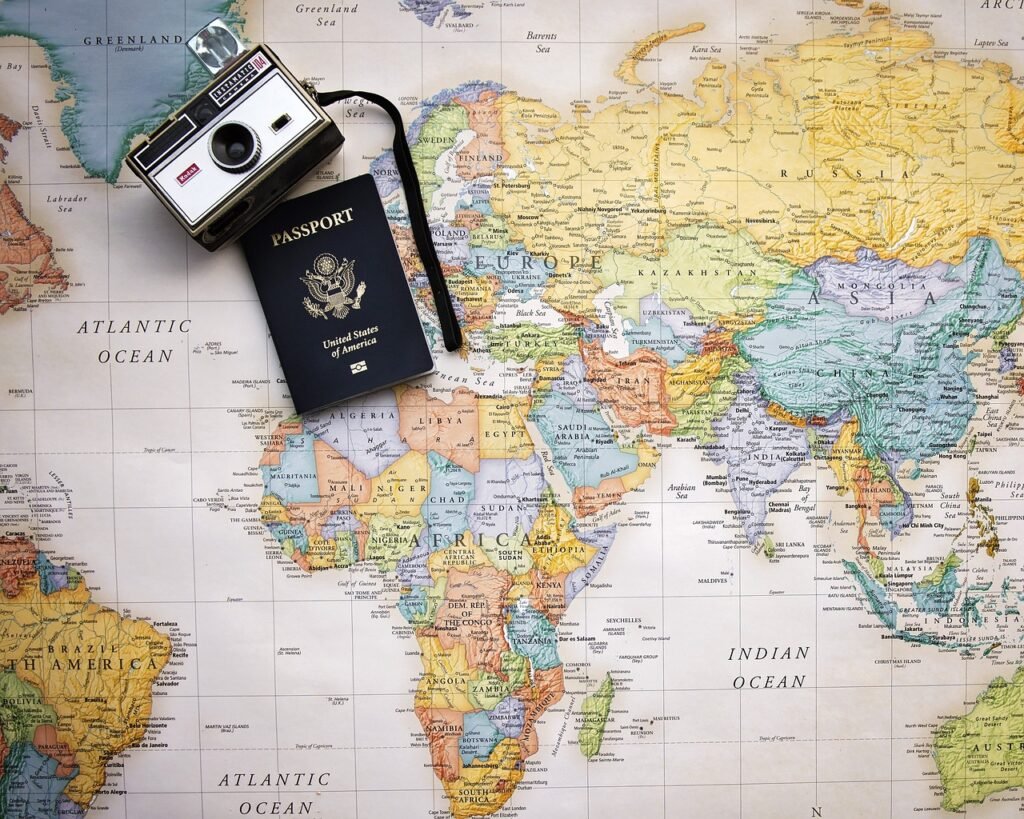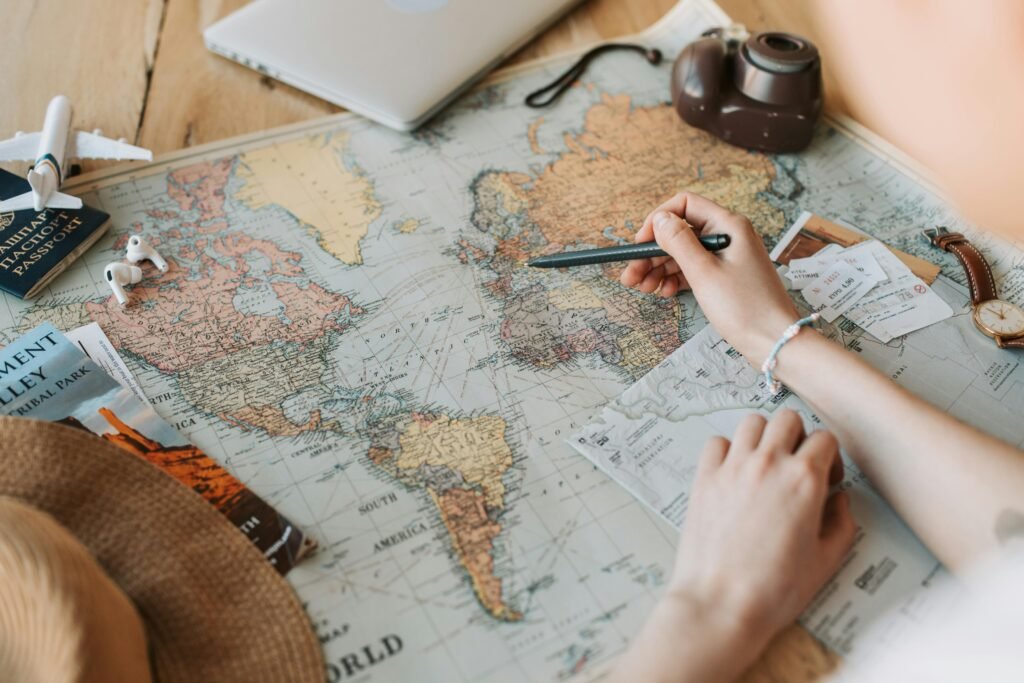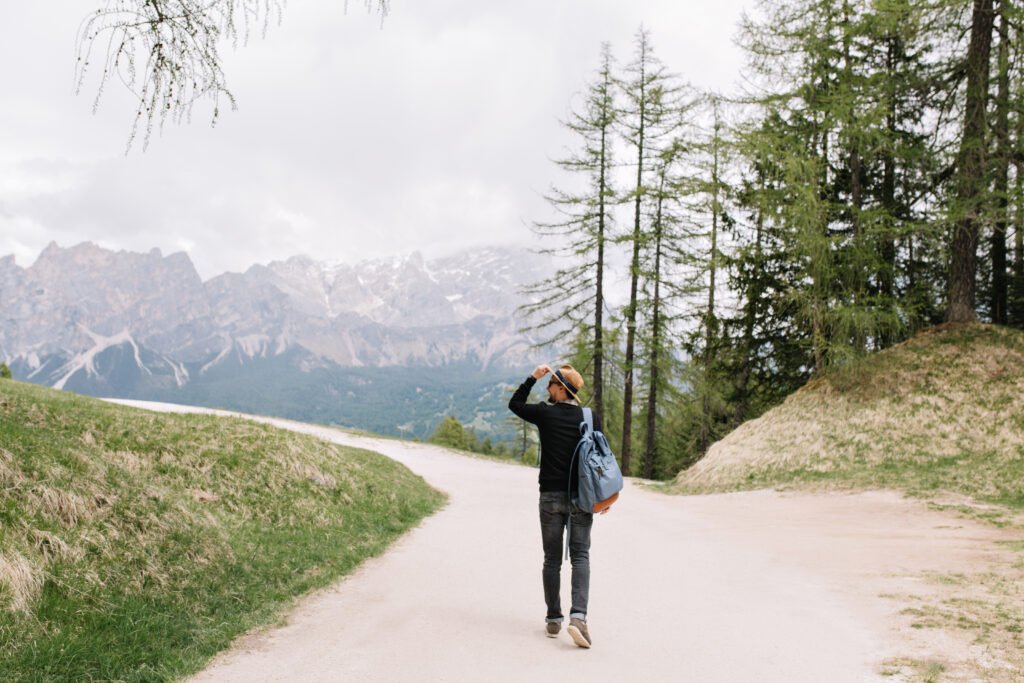Let’s talk about travel safety. For many, the phrase conjures up dated images of bulky money belts hidden under shirts, of clutching bags nervously in crowded markets, and of a constant, low-level anxiety that can overshadow the joy of discovery. But what if we reframed the entire concept? What if safety wasn’t about fear, but about confidence?
True travel safety isn’t about building walls around your experience; it’s about building a foundation of awareness and preparation that allows you to explore the world freely, confidently, and with complete peace of mind. The world has changed, and the old advice, while well-intentioned, is no longer enough. Modern travel requires a modern mindset.
This guide is designed to be your playbook of proactive, intelligent travel safety tips for 2025. Forget the fear. It’s time to travel smarter, not harder.
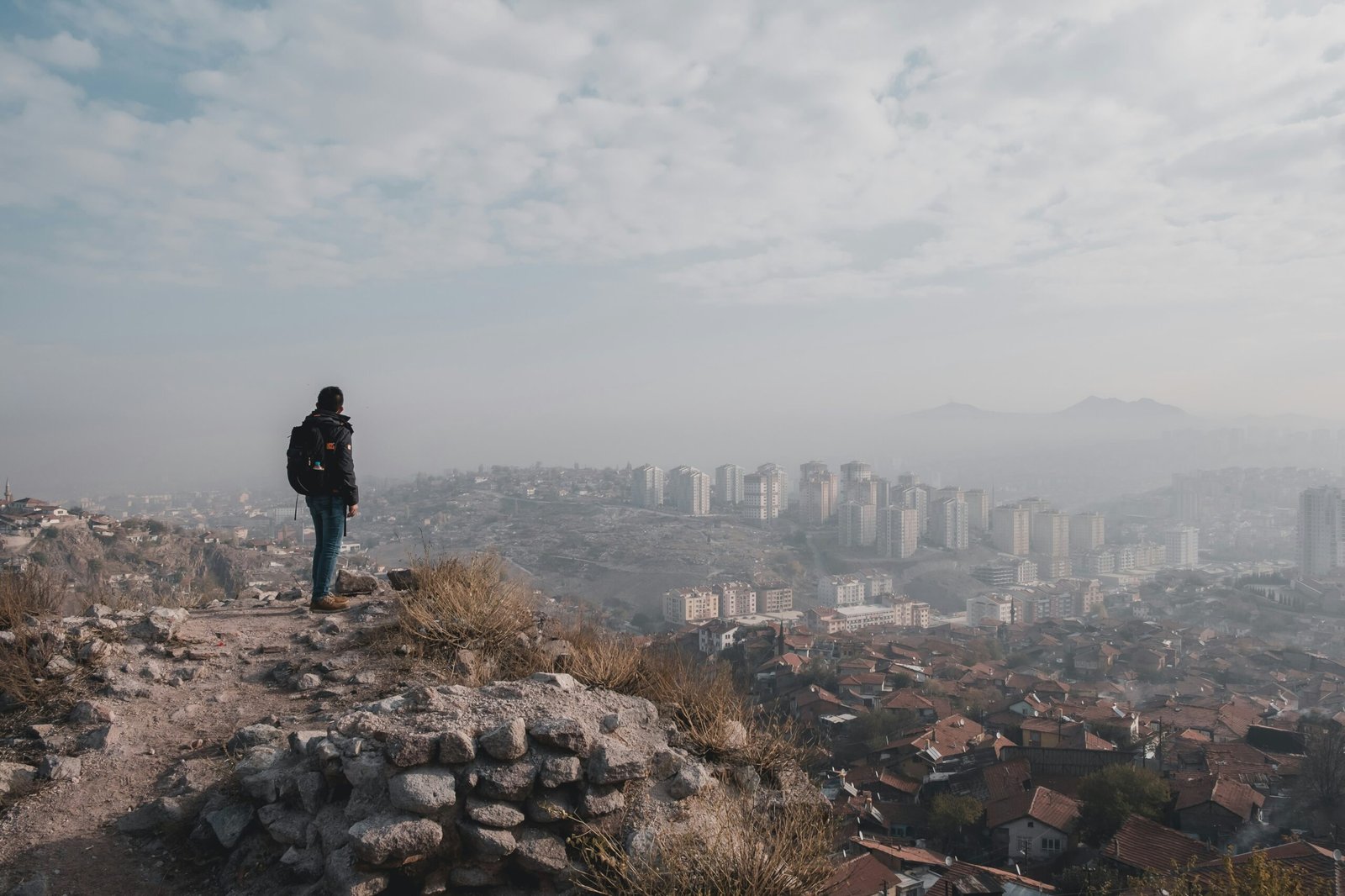
The Modern Safety Mindset: Awareness Over Fear
The single most important tool in your safety arsenal is your mindset. It boils down to three core principles:
- Proactive Preparation: The majority of safety work is done before you even leave home. This preparation is what allows you to relax later.
- Situational Awareness: This isn’t about being anxious, it’s about being present. It’s noticing who is around you, knowing the general layout of the area, and keeping your phone in your pocket when navigating tricky spots.
- Trusting Your Gut: Your intuition is a powerful survival mechanism honed by millennia of evolution. If a situation feels wrong, it probably is. Don’t hesitate to remove yourself from it, even if it feels awkward.
With this mindset, these practical travel safety tips become powerful tools in your arsenal.
Part 1: Before You Go – The Digital & Physical Prep
Your trip’s safety is determined long before you step on the plane.
1. Travel Insurance: Your Non-Negotiable First Step
This is the most critical of all travel safety tips. If you can’t afford travel insurance, you can’t afford to travel. It is your ultimate safety net for everything from a lost suitcase or a canceled flight to a serious medical emergency. Don’t leave home without it.
- Reputable providers like VisitorsCoverage and EKTA offer comprehensive plans that cover medical emergencies, trip cancellations, and theft.
2. A Deep Dive into Digital Security
Your phone and laptop are your lifelines, but also your biggest vulnerabilities.
- Secure Your Devices: Use strong, unique passcodes (or biometrics). Enable “Find My Phone” services.
- Use a VPN: Public Wi-Fi (at airports, cafes) is notoriously insecure. A Virtual Private Network (VPN) encrypts your data, protecting it from hackers.
- Download Offline Maps: Download maps of your destination on Google Maps or Maps.me. This ensures you can navigate without an internet connection and avoids you looking lost while staring at a non-loading map.
- Inform Your Banks: Let your bank and credit card companies know your travel dates to prevent your cards from being frozen due to “suspicious activity.”
- Crucial for Long-Term Travelers: These digital precautions are vital for any trip, but they become absolutely critical for those embracing a long-term lifestyle on the road, such as those applying for one of the many new digital nomad visas.
Email a copy of your flight details, hotel confirmations, and a general itinerary to a trusted friend or family member at home. However, resist the urge to post your real-time location or detailed plans publicly on social media.
4. Make Digital and Physical Copies of Documents
Take photos of your passport, visa, driver’s license, and credit cards. Save them to a secure cloud service (like Google Drive) and also keep a physical photocopy in a separate bag from the originals.
5. Pack a “Just in Case” Kit
Your own small first-aid kit with essentials like pain relievers, band-aids, antiseptic wipes, and any personal medications is invaluable. Carry a copy of your prescriptions.
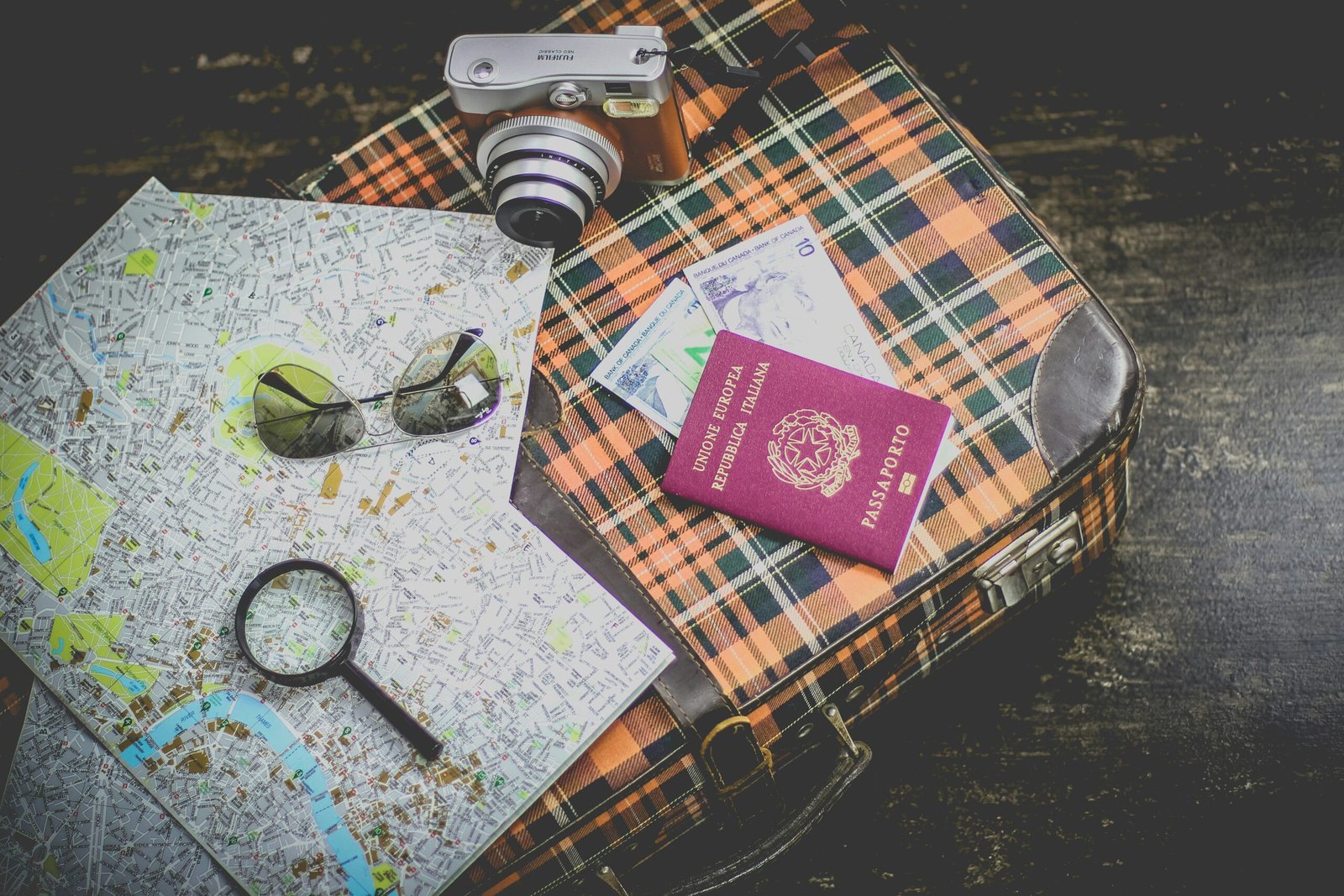
Part 2: On the Move – Transportation & Getting Around Safely
6. Arrival Strategy: Pre-Book Your First Transfer
You’re most vulnerable when you’re tired, jet-lagged, and in a new place for the first time. This is when airport taxi scams thrive. One of the best travel safety tips is to pre-book your transfer from the airport to your hotel with a reputable service like Welcome Pickups or Kiwitaxi. You’ll be met by a vetted driver who already knows your destination.
7. Master Public Transport
Before you arrive, do a quick search on “common transport scams in [City Name].” Know how the ticketing system works. In many European cities, for example, you have to validate your ticket in a machine after buying it.
8. Rental Car Smarts
If you’re renting a car, do a full walk-around inspection and video it before you drive away. Understand the local driving laws, especially regarding right-of-way and alcohol limits. Use a trusted booking platform like Economybookings.com to avoid hidden fees.
9. Walk with Confidence
Walk with purpose and your head up. Appearing confident and aware makes you a less appealing target for petty crime.
Part 3: Your Home Away From Home – Accommodation Safety
10. Research Your Neighborhood
Before booking a hotel or Airbnb, use Google Maps Street View to take a virtual walk around the area. Does it look well-lit? Are there people around? Does it feel safe?
11. Check Your Room Upon Arrival
Check that the locks on the main door and any balcony doors or windows are secure. Know where the nearest emergency exit is.
12. Carry a Portable Door Lock
For an extra layer of security, especially for solo travelers, a portable door lock or a simple rubber door wedge is a cheap, lightweight gadget that can provide immense peace of mind. You can find many options on Amazon.
13. Don’t Announce Your Room Number
When checking in, if the front desk clerk says your room number out loud, politely ask them to write it down for you instead.
Part 4: Out & About – Street Smarts & Socializing
14. The Art of Blending In
Research local customs and dress codes. Dressing in a way that respects the local culture and doesn’t scream “tourist” can help you avoid unwanted attention.
15. Protect Your Valuables (The Modern Way)
While the classic money belt has its place, a modern anti-theft bag or backpack with features like slash-proof fabric and RFID-blocking pockets is often more practical. When in crowded places, wear your backpack on your front.
16. Café and Restaurant Safety
Never hang your bag on the back of your chair. Keep it in your lap or looped around your leg. Don’t leave your smartphone sitting on the table.
17. Nightlife and Alcohol Safety
Enjoy yourself, but know your limits. Always watch your drink being poured and never leave it unattended. Be wary of overly friendly strangers offering to buy you a drink.
18. Specific Solo Travel Safety Tips
Traveling alone is incredibly empowering. Build your confidence by eating at the bar instead of a table for two, joining free walking tours to meet people, and always trusting your intuition when interacting with new acquaintances.
Frequently Asked Questions (FAQ) About Travel Safety
1. Is it safe to travel solo as a woman?
Yes, millions of women travel solo safely every year. The key is enhanced preparation, choosing destinations with a good safety record for solo females, and applying all the travel safety tips in this guide with extra vigilance.
2. What’s the most common scam to watch out for?
Distraction theft is number one. This is where one person distracts you (by asking for directions, spilling something on you) while another steals your belongings. Be wary of any unusual commotion directed at you.
3. Should I carry my passport with me at all times?
This depends on the country’s laws. In some places, you are legally required to. In others, it’s safer to leave it in your hotel safe and carry a photocopy or a photo on your phone. Research the specific requirements for your destination.
4. How much cash should I carry?
Carry only as much cash as you need for the day. Keep the rest of your cash and a backup credit card locked in your hotel safe.
5. What do I do if I get robbed?
Your physical safety is the only thing that matters. Do not fight back. Hand over your belongings. Afterward, go to a safe place, contact local police to file a report (essential for insurance), and call your banks to cancel your cards.
Conclusion: Travel with Confidence
This list of travel safety tips is not meant to scare you. It’s meant to empower you. By taking these proactive steps, you remove the element of worry and free up your mental energy to fully immerse yourself in the incredible experience of travel.
Safety is the foundation upon which all great adventures are built. Prepare well, stay aware, and go see the world with the confidence you deserve.
Your first safety step is your best investment. Get a comprehensive travel insurance quote from VisitorsCoverage, and then start planning the adventure of a lifetime.


